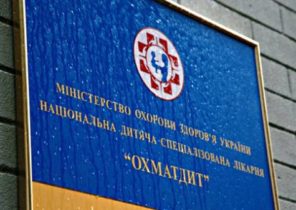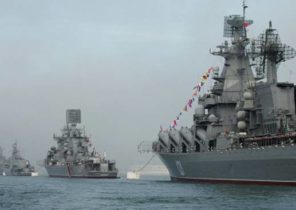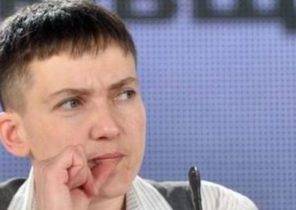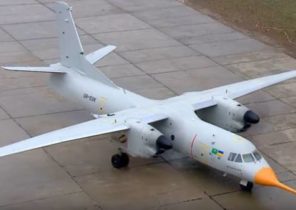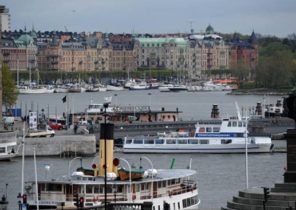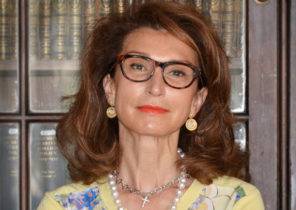A silly smile lit Bashar al-Assad received a warm welcome from Vladimir Putin, who is clearly not eager to enter into a colleague’s arms. January 7, 2020, the two presidents held in Damascus, the inspection of strategic achievements and positions of Russian troops on Syrian territory. Behind them on the wall hung a portrait of the Russian “Tsar”. “Putin called Assad in Damascus” — ironically in opposition.
A simple statement following the meeting, the President of Russia noted the tremendous hard road to recovery of the Syrian state and its territorial integrity. To remind his own contribution to it. Demonstration of the dominance of the Russian patron over Syrian “ally” had its intended effect. But she was not the only message. The fact that in the same moment in Iranian Kerman 2 500 km from the Syrian capital took place the funeral of General Qassem Soleimani, who was killed 4 days before the result of an American attack. The calls of Iranians for revenge was of little interest to Moscow, which saw Syria as part of their “Empire” was not going to admit there is a vendetta. The death of an Iranian strategist allowed Russia to strengthen control over Damascus at the expense of Tehran despite the fact that the Syrian section of the pie is part of a deliberate confrontation between the two powers that came to the aid of Assad regime.
The war is still not over (part of Idlib province is still in rebel hands), but all the attention is already focused on what comes after. The regime, Russia and Iran were more or less United front at the most acute moments of the conflict, so as not to lose face, but now, when military victory is at hand, the Alliance gives all the more noticeable cracks. “The economic situation in Syria is so catastrophic that further it can not continue. This is the beginning of a big change because of differences within the standing power of the clan, as well as facing the public display of the contradictions between Russia and Iran,” says one Syrian-Lebanese businessman.
Euphoria for no reason. Assad, Putin and Khamenei set the pile of rubble. The restoration will require hundreds of billions of dollars, which no one in the camp of the supporters of the regime. The country is on the brink. The economic crisis has never been so heavy, even in the midst of war. There are conversations. Protests against the high cost of living have become increasingly prominent in the stronghold of supporters of Assad. “The atmosphere in Damascus is bleak. Inflation as if the chain broke, and the Syrian pound is worth no more,” says who asked not to be named Damascus businessman.
In the hands of the king
Al-Assad in Syria, everyone is trying to pull the blanket over himself. Russia wants to turn the page of war, to stabilize the achievements and to restore international relations regime. “The main challenge for Moscow is to convert the military successes in the economic and political achievements,” — said the expert on the Middle East Alexey Khlebnikov of the Russian Council on international Affairs. The Iranians look at the situation differently. They may not be out of the question to negotiate with the Syrian opposition, the West or the Gulf monarchies. Presence in Syria for them — a matter of survival: it is necessary to strengthen the Shia corridor from Tehran to the Mediterranean via Baghdad, Damascus and Beirut.
In the context of the struggle for power, where there is a mutual responsibility. There are a variety of theories. The Iranians are packing their bags? Rami Makhlouf will be replaced by a cousin of Bashar? Putin is ready to abandon Assad? As in the beginning of the Syrian war, opponents of the regime tend to dwell on each message about the weaknesses of the loyalist camp, while supporters of Assad acting like the cooperation between Moscow, Damascus and Tehran has not had any problems. The truth often lies somewhere in between: the ship sways, and victory is called a triumph, but at the beginning of the end of Assad is also not very similar.
In any case, the regime faced new challenges call into question its survival. 20 years after the death of Hafez al-Assad on 10 June 2000, the fate of the current Syrian dictator as ever is in the hands of the Russian Tsar. In late April, Russian media published a number of articles with harsh criticism of the Syrian state in General and Assad in particular that shed light on the cracks in bilateral relations. The first information volley gave Federal news Agency businessman Yevgeny Prigozhin, nicknamed “Putin’s cook” (to it belongs also active in Syria and Libya PMC “Wagner”). Materials in particular have presented Bashar al-Assad is a weak leader and called him the Prime Minister Imad Khamis corrupt, who does not shy away from the dirty business of oil theft. It was alleged that the Syrian President has lost the confidence of the financial elite due to the inability to combat corruption.
Although some of the materials removed under the absurd pretext that they were published by hackers with intent to harm bilateral relations, the damage was already done. “The dog barks, the wind carries”, — assured the Ambassador of Russia Alexander Efimov in interview to the newspaper “al-Watan” on may 20. However, several days later, the same Efimova was appointed presidential special representative on developing relations with Syria: the Kremlin wanted to show the Syrian protégé, now everything should be under his control. Russian authorities distanced themselves from the articles “in a fairly fresh manner, to create a sense that they do not like such a threat to the Syrian regime,” — said the former French Ambassador to Syria Michel Duclos in the material of the Institute Montaigne. “Recent criticism in the Russian media has nothing to do with a non-official position. Moscow has no illusions about the Assad regime. She knows he is not the best partner, but this is the only available option in Syria”, — says Alexey Khlebnikov.
The main objective of the information campaign against the regime, apparently, is connected with the interests of the Russian oligarchs who seek to win a place in the fight for the Syrian markets. “Syria is a testing ground for Russian weapons and policy, as well as financial manna for the budget, which beat Western sanctions”. — said Ruslan Trad, analyst and founder of the Bulgarian edition of De Re Militari.
Instead of signing contracts with Damascus, which has no money to pay the bills, the Russians preferred to row up under the country’s natural resources such as gas, oil and phosphates. They believe that these resources rely to them, and looked at them even before the intervention in 2015. Two years earlier, forces private military company “Slavic corps” was sent to Syria to fight on the side of the regime. “The main objective of these mercenaries was to take control of strategic objects”, — said Ruslan Trad. In 2017, the company “Stroytransgaz” of the Russian billionaire Gennady Timchenko was able to get the contract on extraction of phosphate from under the noses of the Iranians. Other companies, including those belonging to the already mentioned Eugene Prigogine, expect to engage in oil and gas production in the country. In addition, Russia, the world’s largest producer of wheat, intends to transform the port of Tartus, where it has its military base in the “green hub” for export to the middle East market.
“Iran is not going to stand aside”
Russia controls the situation, especially in the West of the country. She belongs to a military airfield in Mamimi and the base in Tartus, she holds in her hands the security apparatus. In addition, only she can speak to other important players (Turkey, Israel, the West, the Gulf monarchies), and its own presence in Syria is not disputed. Whatever it was, its influence is not to be considered absolute. “Russia has some leverage, but I would not say, as often caricatured, it seems that Moscow gave the order, and Damascus to implement it,” — emphasizes Alexey Khlebnikov. “The Russians apparently did not take into account the fact that Assad is on his hands and other cards, such as Iran, which is present in Syria longer than Moscow”, — says Ruslan Trad.
Russian diplomats is not the first year playing on the ambiguity of the relationship of the three main forces of the loyalist camp. They actively give to understand that not only they make the decisions, as if to absolve themselves of responsibility for crimes or certain actions of the regime. This position is very convenient during the war, but it has shortcomings when it comes to rebuilding the country. The more time that passes, the stronger partners of Russia in Syria look like major obstacles to its goal of achieving peace. This applies in particular to the Iranians and their paramilitary organizations, whose presence was very important for the return of the territory, but now threatens the gains made over recent years. “Russians no longer need the Iranians in Syria,” says a Western diplomat.
The last few months relations between the two countries studied literally under a magnifying glass. At the official level, of any hostile statements there, but behind the scenes is a tough fight. The Iranians seek to save face. “The history of the quarrels — just a rumor. Iran and Russia have developed deep strategic relationships, one aspect of which is Syria,” — says close to Hizbollah journalist and analyst Faisal Abdul Sather. “Both sides understand that a failure would undermine the prospect of any other strategic cooperation between them in the region,” adds a former Iranian diplomat Seyed Hossein Mousavian.
The last few months has definitely been the worst for the Islamic Republic, which had to restrain their plans. The death of Soleimani, coronavirus, Israeli strikes on armed groups and the crisis in the economy (particularly due to us sanctions) does not allow her to go against Russia. The Iranians need Syria much more than Moscow. In financial terms, one gets a very interesting picture. If you believe, published in late may article in “Bloomberg”, in 2011 to rescue the Syrian regime had spent 20 to 30 billion dollars. A colossal sum for a country that is in such a position. In the Syrian state media not a week goes by without articles about the new contract or the extension of cooperation between Syria and Iran in a particular industry. Dust in the eyes? Mode is perfectly able to play on competition between the sponsors. For example, it was customary that the original agreement that Damascus and Tehran are not implemented in practice.
In 2017 the preliminary agreement for the extraction of gas from the Palmyra collapsed six months later, because the Syrian government ultimately chose Stroytransgaz. “Iran is not going to stand by and know that Russia will not retreat before anything to get the lion’s share,” — says Ruslan Trad. The Iranians tried to gain a foothold in the “Russian territory” and to urge the regime of the lease of the port of Latakia in October of last year, but he is still under the Russian influence and Moscow was not going to allow competition. “Whatever it was, the rivalry between Iran and Russia is now much stronger than is felt on the military than the economic level,” says a Syrian analyst Sinan Hatahet, author of the Chatham House released in 2019 the report “Syria and Iran: economic influence in Syria.”
“They don’t trust each other”
The Syrian government — the area with greatest strategic significance for the Iranians. On 30 September Pro-government Syrian media triumphantly celebrated the opening of the border post Bukamal in the hope that it will help to boost trade with neighboring Iraq. For Tehran, this checkpoint is very important, because it allows associated with armed groups, especially Hezbollah, to move freely from Iraq to Lebanon. To protect areas of the Pro-Iranian militias have been placed in several cities Deir-ez-Zor, West of Euphrates. “After the start of operations in Syria in 2012, the only military perspectives “Hezbollah” in Syria has outgrown in the economic. From the statements of Hassan Nasrallah clear that they are interested in Iraq, and that they expect to maintain a presence in Eastern Syria”, — the analyst of the Carnegie Centre Mohanad Hage Ali. In the region were built, military bases, and families of hundreds of foreign Shiite fighters (the Afghans, Pakistanis, Lebanese and Iraqis) were placed in apartments that are paid for Iranian businessmen.
From the center of Deir ez-Zor Russian eagle closely watching these movements, which he did not like. And turns a blind eye to Israeli attacks on Iranian headquarters. “In Deir ez-Zor relationship the Russians and the Iranians are reduced to coordination. They don’t trust each other,” explains founder of news website Deirezzor24 Omar Abu Laila. After the death of Soleimani Russia has become easier to displace in the direction of the partner. “Relations between Russia and Hezbollah is a forced Alliance with the joint fight at the front, but with the lack of trust,” says Mohanad Hage Ali.
Israeli attacks on the forces of Tehran gained momentum over the past few weeks. They again conducted in the North and East of the country, although I was limited to the South under the pressure of Russia. “The Russian air defense systems are not accidentally allow Israeli planes to strike dozens of attacks on Iranian interests in Syria”, explains Ruslan Trad. Russia can rely on other players who are willing to “clean” instead. Thus, the United States claim that will not demand the withdrawal of Russian bases, because their only goal is to expel the allied forces of Iran. “Russia knows that Iran be expelled from the Syrian scene by the Americans and the Israelis, and do not apply much effort to negotiate with the Iranians and give them effect”, said Omar Abu Laila.
Moscow is trying to present itself as an arbitrator. It apparently seeks to avoid conflict with Iran, which still may be necessary, but it is weakened quite satisfied with it. As for the imminent departure of the Iranians, who promised the Israeli government, we should exercise caution. “There is nothing to indicate the departure of Iranians from the country. It is actually exactly the opposite,” says Mohanad Hage Ali. Recently the Iranians have joined the battle for Idlib and for the first time deployed forces in Daraa. After years of struggling they are not going so easy for you to quit. Even if you have to play the muscles in front of the Russian partners. “In the end, Russia is not included in the axis of resistance,” — said the representative of “Hezbollah” Mohammad Nabulsi Afif.
Intrigue
The Syrian regime has to maneuver in these troubled waters. “The Iranians — insurance for Assad,” said a Western diplomat. The President obliged all his two allies. They helped him to resist the code it was pressing on all sides. Anyway, he can not show himself weak, and ready to make any concessions leader, not to lose trust in people. “All of these video where Bashar is behind Putin, became a shock for us. But he has no choice, he’s stuck. He became a servant of the President of Russia”, — says the businessman from Damascus. Many have criticized the transfer of key industries of Russian and Iranian companies, since they see it as “gifts” and not the full investment. Russian article ticked off the Syrian establishment. “Putin needs more to Assad than the one in it,” recently stated in a response on Facebook MP Khaled al-Abboud. In any case, the population perceives the Russian presence is much better than the Iranian. “In Damascus, people Russian a thousand times preferable to an Iranian. Russian behave inconspicuously, and the Iranians are coming with their troops,” — emphasizes a Syrian businessman.
Amid all these geopolitical struggles increasingly resembles Damascus riddled with intrigue courtyard where power circles, clutching each other’s throats. The war enabled the financial elite to strengthen control over the economy. These new businessmen associated with the regime and serve his interests, not curasi a variety of tricks. The billionaire cousin of Bashar, Rami Makhlouf has much to tell about it. After the state decided to take him, he didn’t want to remain silent and put the dirty linen in public. He is actively outraged on Facebook and refuses to pay the amount that the government as taxes. “He’s more than a dozen years stole everything, and now builds himself a poor man. And I want to go for him to collect donations,” — ironically, a businessman from Damascus. The regime seeks to boost the coffers of the available money, but talking about what the President’s wife ASMA wants to ensure their children’s future.
In the hands of the regime, there are other businessmen, and government attempts to shake the richest man of the country, clearing the field for these predators. Such as Samer Foz and Mohammad Hamsho. They understand that they have to serve and hunt with the hounds. According to the businessman from Damascus, “they want to buy all”, as if we are talking about the party Monopoly. They should be flexible to deal with the Iranians to develop a personal relationship, meet with religious leaders. “The Iranians are closely watching such things”, — said Sinan Hatahet. But here the advantage is on the side of Russia. “Ultimately, these businesses would prefer to buy a penthouse in Moscow and not in Tehran,” jokes Mohanad Hage Ali.
